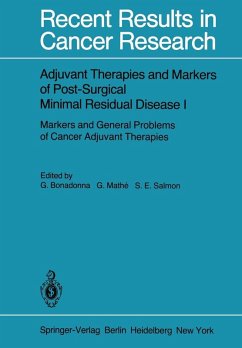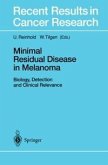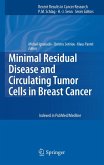P. Denoix and G. Mathe Approximately 70% of cancer patients relapse after surgery before the 5th year and, in most cases, for example in breast carcinoma, they relapse still later up to the 20th year. For some considerable time, the strategy of cancer treatment has been limited to the sophistication of surgery-radiotherapy combinations that maximally decreased the incidence of local and regional relapses in sites that were within their reach. Today, the practice of clinical oncology is unthinkable without the active participation of the medical oncologist. He is the "third man" of the clinical oncology team, and he has recently focused attention on the fact that most relapses arise from distant metastases due to the proliferation of cells seeded there after having left the primary tumor site at the time of operation and, hence, are inaccessible to any form oflocal and/or regional treatment. On this evidence, medical oncologists have proposed the application of medical treatments for disseminated minimal residual disease (MRD). They have two available means: chemother apy and immunotherapy. Medical oncologists in general can be divided into three groups: chemotherapists, immunotherapists, and chemoimmunotherapists. The pure chemotherapists, who had already cured some malignant neoplasias such as Hodgkin's disease, acute lymphoid leukemia, placental choriocarcinoma, and Wilms' tumor, thought they might have the means of attacking the residual disease of common cancers.
Dieser Download kann aus rechtlichen Gründen nur mit Rechnungsadresse in A, B, BG, CY, CZ, D, DK, EW, E, FIN, F, GR, HR, H, IRL, I, LT, L, LR, M, NL, PL, P, R, S, SLO, SK ausgeliefert werden.









